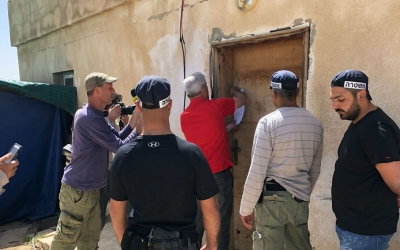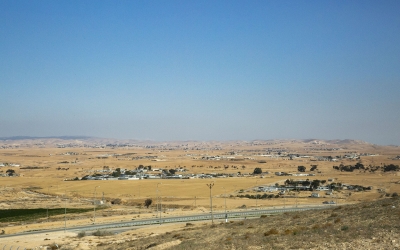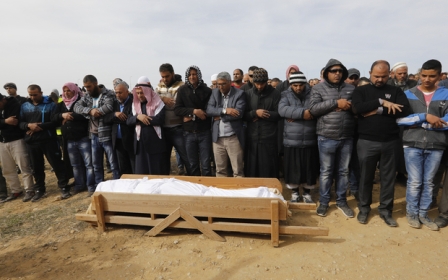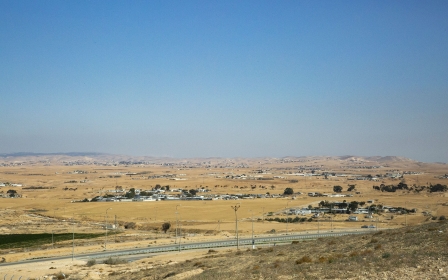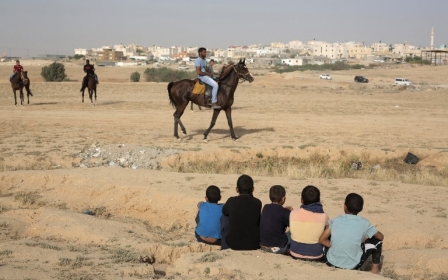'Clear his name': Israeli court petitioned to reopen probe into Bedouin teacher's killing
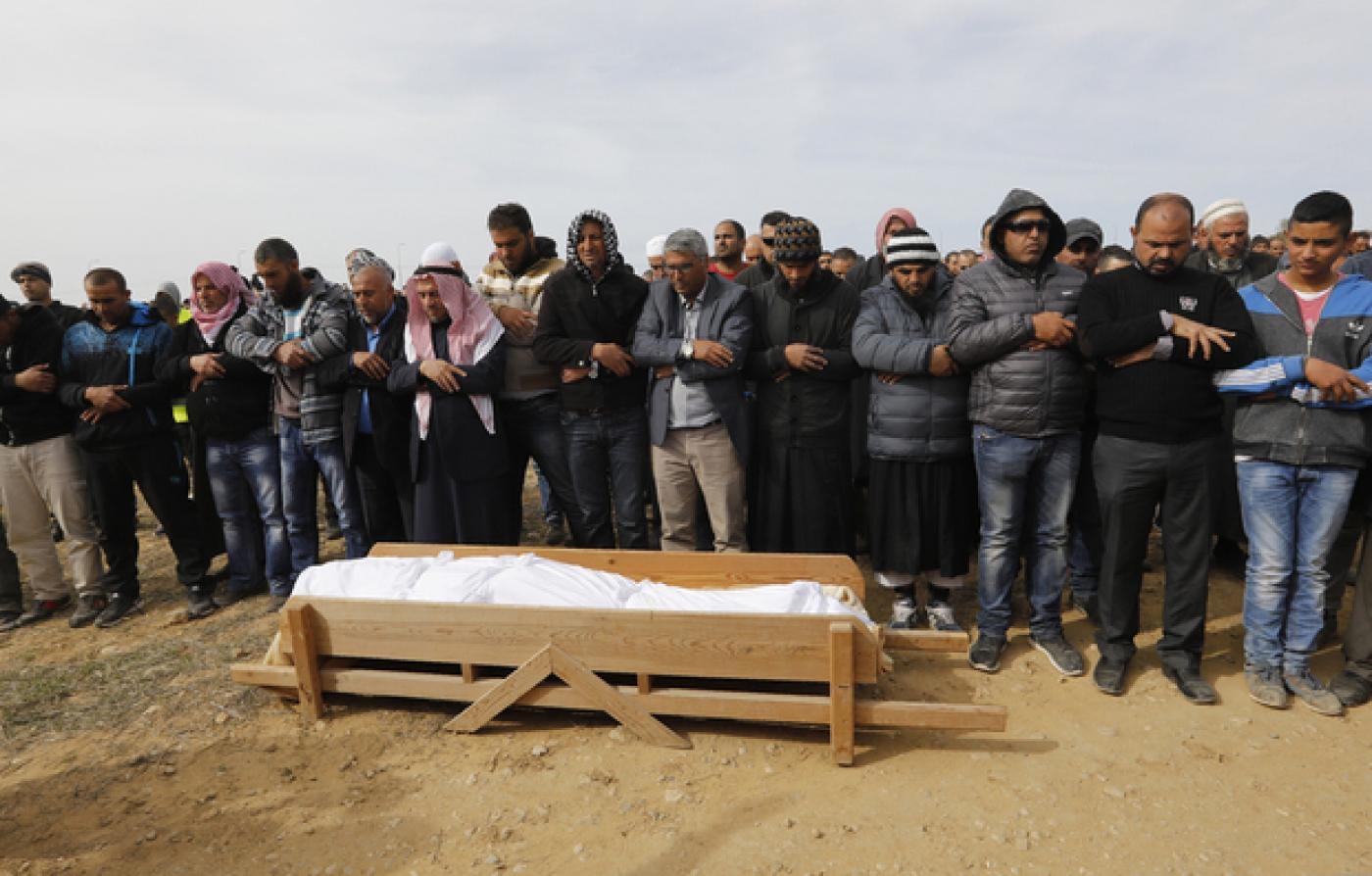
Three years after a Bedouin teacher was killed by police officers during a raid on his unrecognised village, and two years after Israeli officials found no wrongdoing in the incident, a group of NGOs are asking the country's Supreme Court to reopen an official investigation.
Lawyers with Adalah, the Legal Center for Minority Rights in Israel, and the Public Committee Against Torture in Israel (PCATI), filed a petition to the court last week arguing that there was a disconnect between evidence collected by investigators and their conclusion.
New MEE newsletter: Jerusalem Dispatch
Sign up to get the latest insights and analysis on Israel-Palestine, alongside Turkey Unpacked and other MEE newsletters
Their argument is that there was evidence authorities acted with unnecessary force, but no one was ever charged.
Thanks to the efforts of independent investigators, evidence emerged within 24 hours that indicated the officers were not acting in self-defence. The petition points out that disconnect.
"Israeli society has had a long while to get used to the fact that this was a mistake, a tragic mistake," said Dr Rachel Stroumsa, PCATI’s executive director. "And what we're able to show now through the petition was that this was a criminal mistake... and yet we see no action on that criminal case."
By the time Yaqoub Abu al-Qiyan was shot twice by police in 2017, once in his knee and once in the shoulder, tensions in his village had been boiling over for years.
The 47-year-old school teacher was a Bedouin from Umm al-Hiran, located in the Negev, where Israel has for years tried to evict Bedouins in order to build military bases, industrial complexes and Jewish communities.
In the early hours of 18 January, 2017, Israeli police had come to destroy the Bedouin houses in the village, where they were met by a group of protestors.
Not a 'terrorist'
For more than a decade, the government had been attempting to evict the residents of Umm al-Hiran.
The plan was to build an Orthodox Jewish-only town where the Bedouins lived. Lawyers from Adalah had represented the community since 2003, as multiple courts upheld the demolition plans.
When Abu al-Qiyan was killed, he was driving slowly away from his house after collecting his belongings.
Police yelled for him to stop. He didn't, and they opened fire. The car sped up, and ultimately struck an officer, Erez Levy, killing him.
Police and medical staff on the scene then left Abu al-Qiyan unattended on the ground nearby for about 20 minutes, failing to tend to his wounds and causing him to bleed to death.
Within 24 hours, the Israeli government would label him a "terrorist," claiming he was inspired by Islamic State.
A little more than a year later, the state attorney's office closed an investigation into the incident, declining to bring any charges against police officers for opening fire or for failing to provide medical assistance to Abu al-Qiyan, despite finding evidence that there had been no immediate threat.
Later that year, the Israeli domestic intelligence service, the Shin Bet, found that Abu al-Qiyan was not a "terrorist".
Thermal imagery
Investigators with Forensic Architecture, a UK-based research agency that uses a methodology called open verification to examine events, began collecting information about the killing almost as soon as it happened.
Dr Eyal Weizman, the group's director, said they worked with Abu al-Qiyan's family members, politicians who were on the scene at the time of the killing, journalists, alternative media organisations, activists and human rights lawyers to piece together the events.
As a result, the group began publishing information about the killing almost immediately.
Israeli Prime Minister Benjamin Netanyahu and Gilad Erdan, Israel's Minister for Public Security, had both already accused Abu al-Qiyan of deliberately killing Levy, but Forensic Architecture found compelling evidence that that was untrue.
The group compared thermal imagery released by police showing an aerial view of the incident. They compared that with other footage they had gathered and could tell that the car sped up only after it had been shot at.
A later autopsy leaked to the press showed that Abu al-Qiyan had been shot in his right knee, which would have been on the gas pedal at the time.
The report also showed that Abu al-Qiyan's life could have been saved if he had received medical attention.
'They were calling us fake news'
To Weizman, the tragedy of Abu al-Qiyan's death hits hard. Forensic Architecture had been working with residents and activists in the Negev for other ongoing projects, so he felt a strong connection to Bedouin communities.
"It's one of the most important and painful investigations we’ve been involved in," he said.
When Forensic Architecture began publishing information, there was a backlash from Israeli authorities.
"They were calling us fake news, manipulators of evidence," Weizman said.
"The government just basically attacks your credibility, your expertise, the motivations of everybody... but anyway we proved them wrong, but they haven't charged the police officer."
Sawsan Zaher, a lawyer with Adalah, said there has been a trend of Israeli authorities failing to charge police officers in brutality cases against Palestinian citizens.
During the Second Intifada, between 2000 and 2005, she said, Adalah represented the families of 13 Palestinians who were killed by police and no officers were ever charged.
"This case is not unique," Zaher said of the killing in Umm al-Hiran, "because in other cases where police shot Arab or Palestinian citizens, it almost never leads to any indictments against the police officers.
"It is part of a systemic policy that views Palestinians as an enemy, where Arabs can be killed and the state conducts violence against them and no one will be liable for that."
'Institutional racism'
Dr Lana Tatour, a fellow at Columbia University's Center for Palestine Studies, said that the legal system itself in Israel is improperly set up to handle these kinds of cases because the state is built to prioritise one group of people's needs over others'.
"What we are seeing here is not surprising, because what makes this incident possible, is the structural racism, and not just popular racism - institutional racism that is inherent to the legal infrastructure and the architecture of the Israeli state," Tatour told MEE.
"It's unfortunate, but it makes sense in relation to Israel as a racial state... Jews would enjoy accountability."
Tatour pointed to the situation in the Negev as an example.
"The Bedouins have been resisting these plans for decades now," she said. "Israel has escalated its plans since the mid-2000s... it also has plans to, what they call, 'develop,' the Naqab [Negev], and transferring military bases to the Naqab and basically place them on Bedouin lands."
'Have his name cleared'
In that context, tensions were high in Umm al-Hiran the night Abu al-Qiyan was killed. A group of protestors - including Knesset member Ayman Odeh - had gathered to demonstrate against the demolition.
After the killing, the demolition did not go through. But government officials did convince the Bedouins to sign an agreement saying they would voluntarily leave the land, which means the demolition will likely still happen.
For Abu al-Qiyan's family, the goal has been to set the record straight.
"One of the main things that they’re asking for is to have his name cleared," Stroumsa said.
"They can't have their brother back, they can't have their son back. To ask the public prosecutor to acknowledge what everyone knows to be true is the least they can ask for.
"The fact that they have to petition and ask for it - that's the real outrage... It should be embarrassing to the attorney general that we've reached this position."
Middle East Eye delivers independent and unrivalled coverage and analysis of the Middle East, North Africa and beyond. To learn more about republishing this content and the associated fees, please fill out this form. More about MEE can be found here.


